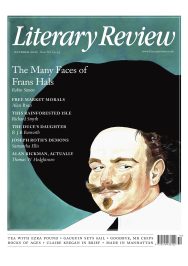Jennifer Altehenger
The Ghost at the Party Congress
China After Mao: The Rise of a Superpower
By Frank Dikötter
Bloomsbury 416pp £25
On 10 September 1976, the day after Chairman Mao died, Gamani Corea, secretary-general of the United Nations Conference on Trade and Development, sent a condolence note to the ambassador of the permanent mission of the People’s Republic of China at the United Nations in Geneva: ‘Please convey to the family of Chairman Mao and to Premier Hua Kuo-Feng and his cabinet my deepest condolences on the passing of a man of vision and a statesman of epic stature whose impact will be felt as much in the future as in the past.’ Where others in their condolences avoided reference to China’s future, Corea recognised that Mao’s vision would continue to guide the country.
This was not obvious at the time. It was possible that China’s new leadership might follow the Soviet Union’s project of de-Stalinisation. Yet Corea turned out to be right. China took a different path to the Soviet Union. The Chinese Communist Party hitched the country’s future to a curated version of Mao and his ideas. A resolution adopted at the party’s Sixth Plenum in 1981 might have inscribed into official memory that Mao had been partly responsible for the mistakes of the Cultural Revolution. But it also affirmed that his achievements outweighed his errors: Mao deserved credit for victory in the Civil War before 1949 and for building a ‘New China’ thereafter. Not long afterwards, Deng Xiaoping famously declared that Mao had been 70 per cent right and 30 per cent wrong.
Over the four and a half decades since Mao’s death, China has developed into one of the world’s major economic powers under the aegis of the Communist Party. Little about this development has been straightforward. It has provided material for seemingly endless, often controversial discussions among academics, journalists, politicians, political analysts and others. Interest in China rapidly increased during the 1990s. This was often driven by concern not with China per se but with wider geopolitical developments and debates. Two issues dominated the conversation. One was the fact that even after the end of communism in Europe, the Chinese Communist Party remained in power and maintained its commitment to communism. The other was the realisation that China’s economic growth was not being accompanied by political reform, or at least by what many European and American observers classed as such, namely democratisation. Plenty of people argued that it was misguided to ask why something that had happened elsewhere was not happening in China. Yet their voices were often drowned out.
Historians contributed cautiously to these discussions at first, but this has changed in recent years. Frank Dikötter’s book China After Mao is part of this trend. Historiography of the People’s Republic now reaches across the 1976 ‘watershed’, connecting the Mao era (1949–76) with the reform era, the latter

Sign Up to our newsletter
Receive free articles, highlights from the archive, news, details of prizes, and much more.@Lit_Review
Follow Literary Review on Twitter
Twitter Feed
The era of dollar dominance might be coming to an end. But if not the dollar, which currency will be the backbone of the global economic system?
@HowardJDavies weighs up the alternatives.
Howard Davies - Greenbacks Down, First Editions Up
Howard Davies: Greenbacks Down, First Editions Up - Our Dollar, Your Problem: An Insider’s View of Seven Turbulent...
literaryreview.co.uk
Johannes Gutenberg cut corners at every turn when putting together his bible. How, then, did his creation achieve such renown?
@JosephHone_ investigates.
Joseph Hone - Start the Presses!
Joseph Hone: Start the Presses! - Johannes Gutenberg: A Biography in Books by Eric Marshall White
literaryreview.co.uk
Convinced of her own brilliance, Gertrude Stein wished to be ‘as popular as Gilbert and Sullivan’ and laboured tirelessly to ensure that her celebrity would outlive her.
@sophieolive examines the real Stein.
Sophie Oliver - The Once & Future Genius
Sophie Oliver: The Once & Future Genius - Gertrude Stein: An Afterlife by Francesca Wade
literaryreview.co.uk